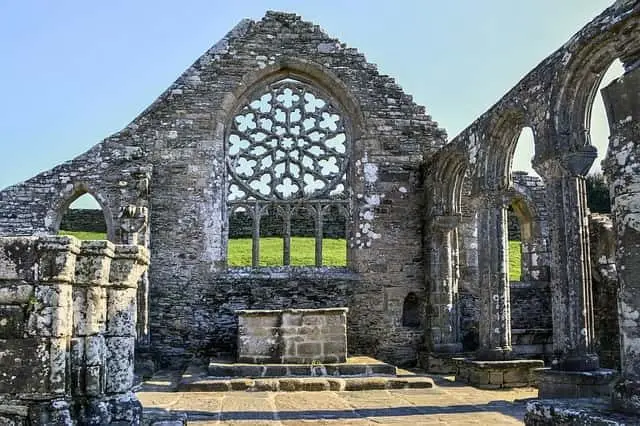By: Dr. T. Y. Hiter
The very different nature of the eastern, or “orthodox” Churches, Greek-speaking (and writing) and the western, or Roman, Latin speaking (and writing) Churches eventually split them apart in 1053, as has been discussed in this space in the past. It is ironic in some ways that Rome, that started out by instituting radical change in worship (different ideas about art, changing the language of the Liturgy from Greek to Latin, discarding the Septuagint for a Bible written in Latin, and changing the words of the Nicene Creed without approval from any of the other Patriarchs) became, five hundred years after the Great Schism, so completely traditionalist that reformers like Luther, Calvin and Cranmer (and a great many others) felt that they had to leave the Roman Communion in order to be fully Christian. But that’s exactly what happened.
One of the major changes wrought by the Reformation was the move to worship in the vernacular. That is, Luther was German and most of his people spoke German, so one of his first moves was to translate the Bible into German, and to begin to perform the Liturgy in that language. Calvin did the same in French, and King Henry VIII, in England, did the same, in English. So did the Dutch Reformed, or Huguenots, in Holland. Only a few years earlier, Henry had been burning Englishmen at the stake for translating the Bible into English. Now, suddenly, he was requiring that a Bible, in English, be placed on display in every English Church, so that anybody who could read could come in and read it. Unfortunately, for some, this liberality on the part of each national Church did not necessarily transfer easily to other places. Another thing that did not transfer easily was the naming of Bishops.
Bishops had, since the earliest days of the Church, been chosen by all the clergy and consecrated by other Bishops. The Apostles themselves named the first Bishops. Paul appointed Linus, in Rome, where Peter appointed Clement (there seem to have been two Churches in Rome at the time), but James the brother of Jesus was the very first Bishop, and he was in Jerusalem, and we don’t know for sure how he got the job. But in other places, other Apostles named them. Paul gave instructions to his younger associates directions on how to do it in the areas that Paul had put under their control. Later, when the Emperor took charge of the Church, he appointed them, though we’re pretty sure he listened to the advice of the Patriarchs as to who to name. This is called “Apostolic Succession”, and Greek, Coptic, Syrian, Roman, Lutheran and Anglican Bishops even today can trace their consecration all the way back to one or another of the Apostles. Thus, it was quite a departure when the Wesley Method ex-Church of England folks in the new United States decided to go it alone. Their brothers who followed the traditional rites waited and continued to try to work with the English Bishops, but to no avail. There was simply no way for the King or Church of England to appoint Bishops in a foreign country, and by that time, that’s exactly what we were.


